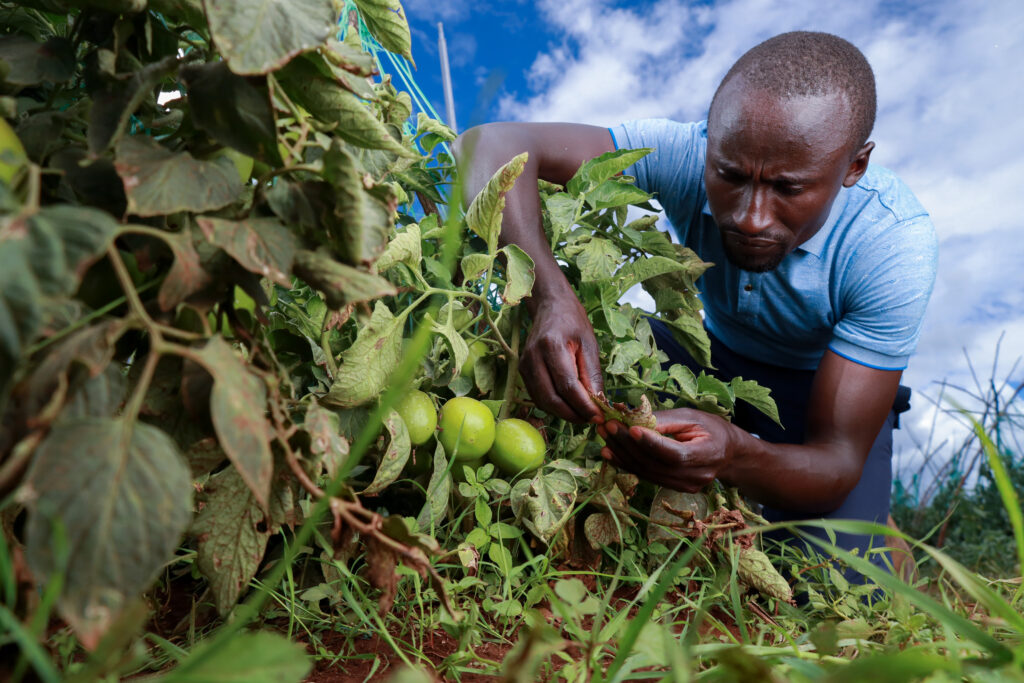By Gideon Amuah | Email – gideon.amuah@gmail.com
In Ghana’s bustling markets, the sound of bargaining fills the air. Buyers and sellers haggle over prices, baskets are filled, and sacks are hoisted onto shoulders. Yet beneath this familiar scene lies a hidden distortion—food is rarely sold by weight. Instead of verified weighing scales, traders rely on old tins, “olonkas,” and makeshift containers. Market women scoop, pour, and guess, while buyers argue about whether the container is truly full. What may seem like a harmless tradition is in fact a serious barrier to fairness, transparency, and food security.
The consequences for farmers are profound. Without scales, produce is undervalued at the source. Aggregators and traders, often using smaller or loosely defined containers, pay farmers less than the true worth of their crops. Over time, this erodes farmer incomes, leaving them unable to invest in fertilizer, irrigation, or improved seeds. Many smallholders already struggle to break even, and this invisible leakage further traps them in cycles of poverty. For a country that imports more than US$3.2 billion in food annually, undercutting local producers is more than an economic flaw—it is a food security liability.
Consumers also bear the brunt. By the time food reaches Accra, Kumasi, or Takoradi, retail prices may be two to three times higher than what farmers received. Because containers vary in size and fill, households often end up paying more for less. Inconsistent measurements fuel price inflation and weaken trust between sellers and buyers. For families already straining under rising food costs, the lack of standardization makes nutritious food less affordable, worsening malnutrition and inequality.
The avoidance of scales persists for several reasons. Tradition is deeply embedded: trading with tins and baskets has existed for generations, and many sellers see no need to change. Practical barriers also matter—calibrated scales are costly to buy and maintain, especially in the rough conditions of open-air markets. Some traders resist scales because they reduce the flexibility of negotiations, eliminating the space for informal “bonuses” or short-changing. Enforcement of Ghana’s weights and measures laws is patchy, allowing the practice to continue unchecked.
But this is not an unsolvable problem. Neighboring countries provide useful lessons. In Côte d’Ivoire, Togo, and Benin, weighing scales are increasingly used in local markets, supported by government regulation and stronger consumer awareness. Ghana has made attempts—the Ghana Standards Authority has launched calibration exercises at Makola and Agbogbloshie—but adoption remains limited, especially in rural and peri-urban markets. If Ghana is serious about food security, this must change.
The Ministry of Agriculture has an opportunity to lead by example. By working with the Ghana Standards Authority and private sector partners, it can aggressively pursue public–private partnerships to supply affordable, durable weighing scales to markets across the country. Subsidies, training, and cooperative ownership models could make scales accessible, while awareness campaigns encourage consumers to demand transparent measures. Digital innovations could also help, with mobile-linked scales allowing farmers and traders to verify weights instantly and compare prices across markets. This would empower farmers, reduce disputes, and build consumer trust.
Measurement is not just about precision—it is about justice. If a bag is not truly a bag, then fairness collapses at every stage of the value chain. Farmers earn less, consumers pay more, and policymakers cannot plan with reliable data. Standardizing weights and measures would help farmers keep more of the value they create, make food more affordable for families, and ensure Ghana can plan its food system with confidence.
Food security cannot rest on guesswork. It demands accountability, transparency, and trust. Until every bag, basket, and tin is weighed properly, Ghana will continue to undermine its own farmers and weaken its fight for food sovereignty. It is time to put the scales back at the heart of our markets.


